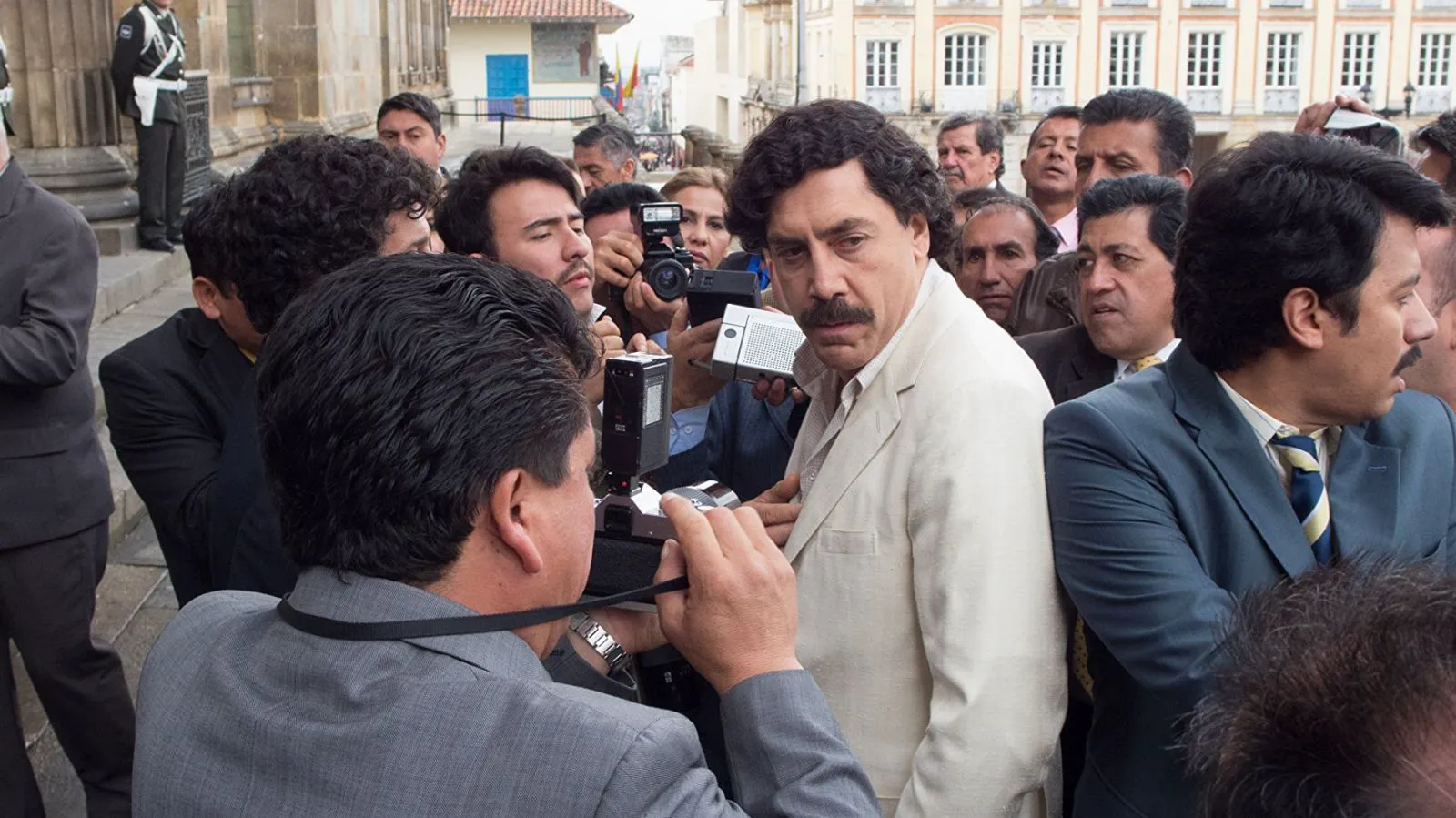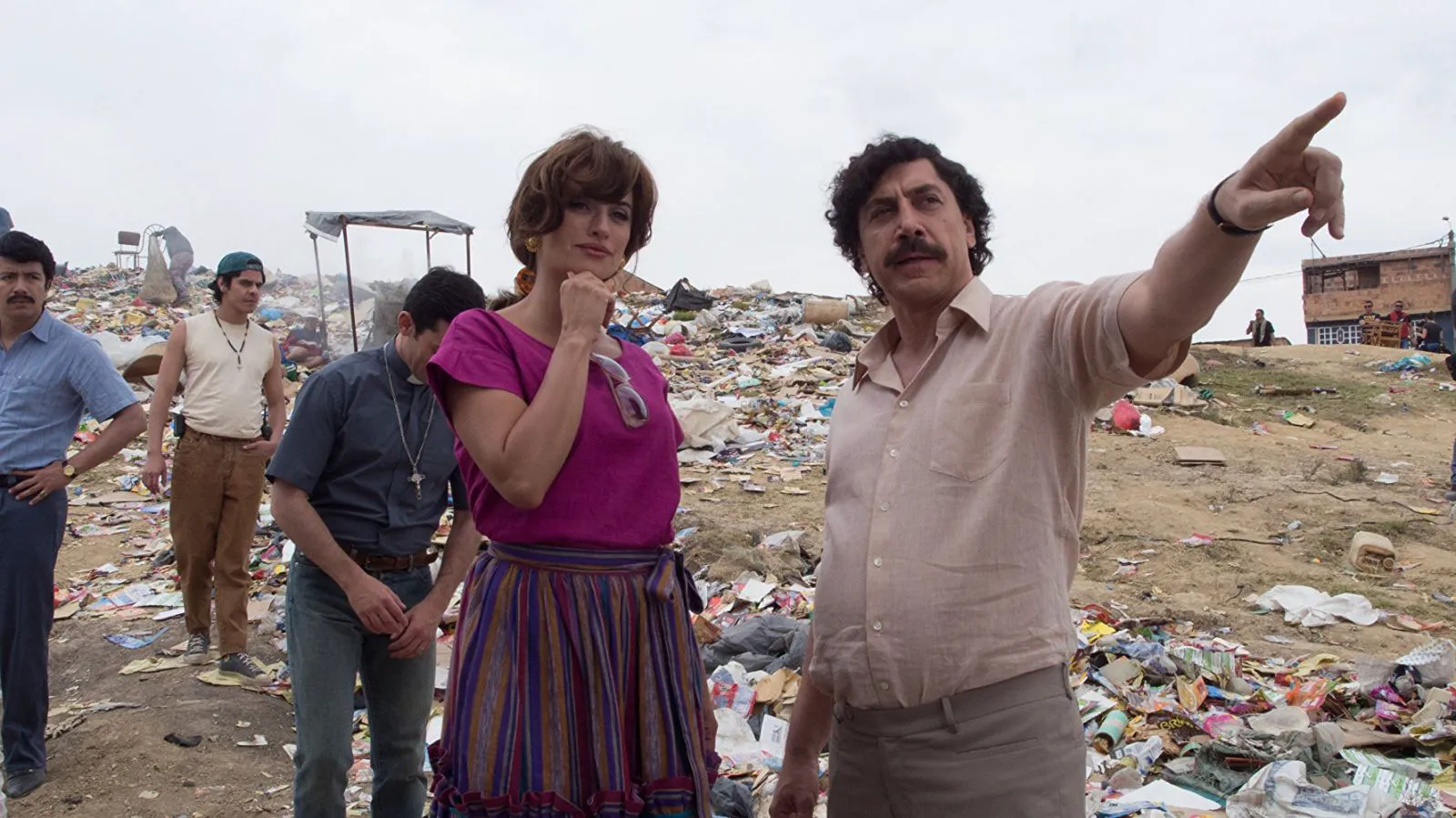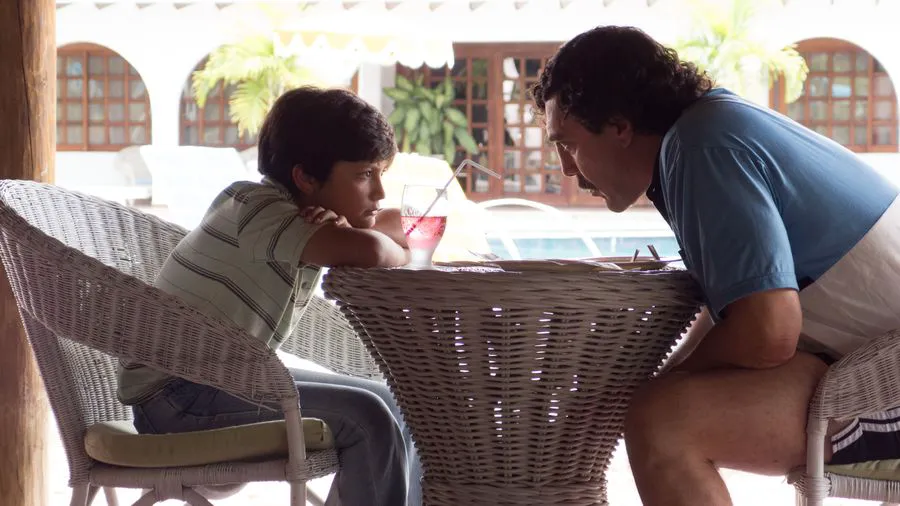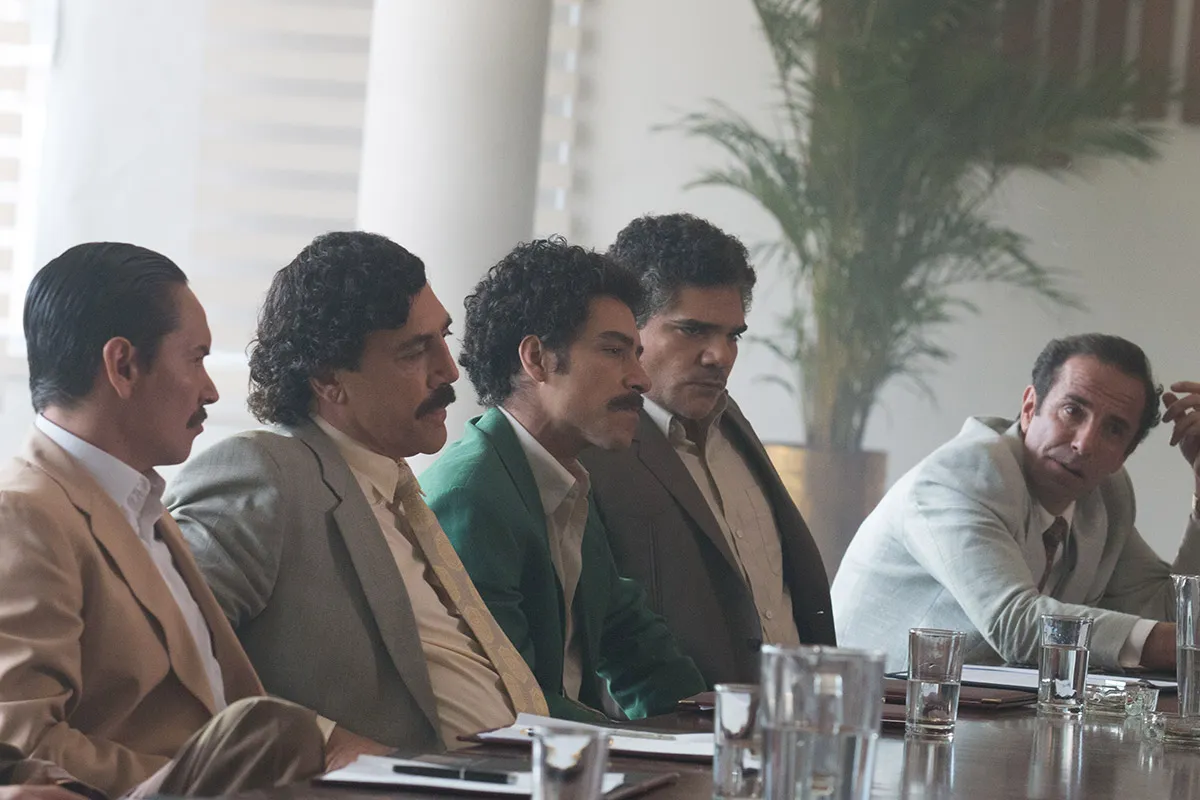Here’s a revised and translated version of the provided text, formatted in Markdown for better readability:
Escobar: A Bio-Pic That Provokes Thought on Power and Politics
A thought-provoking biopic about the legendary Colombian drug lord Pablo Escobar.
In the early 1980s, Virginia Vallejo (Penélope Cruz), a popular Colombian television presenter, meets the drug trafficker Pablo Escobar (Javier Bardem). The journalist is impressed by the criminal’s spending on clearing slums and building houses for the poor. They soon become lovers, and Vallejo witnesses firsthand how Escobar creates a drug cartel, attempts to seize power in Colombia, and battles the local military and their American sponsors and advisors.

Background
Previously, Hollywood directors such as Oliver Stone and Joe Carnahan had attempted to make films about Escobar.
Fernando León de Aranoa’s English-language Spanish crime drama received a new title in Russia: “Escobar” instead of “Loving Pablo” (an abbreviation of Vallejo’s book title, “Loving Pablo, Hating Escobar”). This could easily be added to the long list of “crimes” committed by domestic translators against foreign artistic intentions. However, in this case, the distributors acted in a Confucian manner. They “corrected the name,” which did not convey the essence of the film and misled viewers.

In 2007, Virginia Vallejo’s book “Loving Pablo, Hating Escobar” became a major bestseller in Colombia and the most popular Spanish-language book in the United States.
Indeed, based on the film’s Western title and poster, one might think it’s a love story between two remarkable figures: the legendary drug dealer and the celebrated Colombian television journalist, known not only for sleeping with Escobar for several years but also for writing a book about it. However, those who come to the cinema for the twists and turns of passion and a thorough psychological exploration of the relationship between beauty and the beast will surely be disappointed.

The Love Story
Yes, “Escobar” includes scenes between Pablo and Virginia, and there is some development in their relationship. But this is a banal genre formality. First, the hero showers the heroine with gifts, and she likes it. Then, she realizes that he will not leave his wife and children, and she is upset. And then, his criminal career begins to threaten her life, and the heroine realizes that she is trapped, with only one way out: cooperation with the authorities. That’s all there is to the love story, and it’s presented in such a way that neither Virginia nor Pablo evokes sympathy. It’s clear that she is attracted to power and wealth, and he is attracted to glamorous beauty. Much more could have been extracted from this story, but de Aranoa was obviously not interested.

Instead of depicting complex emotional movements and delving into the attraction and repulsion between the journalist and the drug lord, the director mainly uses Vallejo as a voice-over narrator who helps viewers understand Escobar’s story. Therefore, the title “Escobar” suits the film better than “Loving Pablo.” This is not a crime-romance film but a criminal biopic in which the love line is secondary to the depiction of the hero’s confrontation with local and American authorities.

The Rise and Fall
In “Escobar,” the titular character appears as a proud Icarus who flew too close to the sun. Using his colossal income, Escobar becomes a public politician and tries to change the laws. Perhaps he would have succeeded if it had only been about Colombia. But Escobar interferes in the “internal affairs of the USA worldwide” when he attempts to undermine the American right to judge foreign criminals involved in crime on American territory. The drug lord tries to achieve the abolition of the law on the extradition of Colombians to the United States—and gains foreign enemies whom he cannot buy or intimidate, in addition to those who hate him in Colombia and who are eager to avenge Escobar or seize his cocaine business. As a result, the “master of life” gradually turns into a hunted beast, ridiculous in his increasingly impotent rage. He kills, he schemes, he bribes, but only postpones the inevitable. Although in the process, eccentric combinations are born, such as a specially built comfortable prison from which Escobar freely continued to run the cartel.
This is a curious interpretation of real events, and it is especially interesting in Russia because it touches on issues relevant to us: corruption and national sovereignty (Escobar dresses in the toga of a patriot and fights for Colombia’s independence from the United States). Although artistically, “Escobar” is no more than a variation on the theme of “Scarface,” the reliance on facts, political intrigue, and the color of Colombia makes the film a remarkable independent work, which is instructive for anyone who hopes to rule through fear. We should also note the powerful performance of Javier Bardem, who is very convincing in the role of a cunning, passionate, and comically obese criminal who sometimes scares, sometimes amuses, and sometimes tries to charm. Unfortunately, about Cruz in the film, one can only say that she looks like a cover star.
vanov